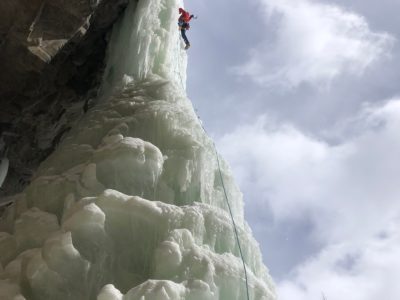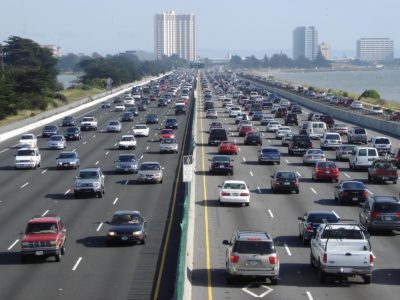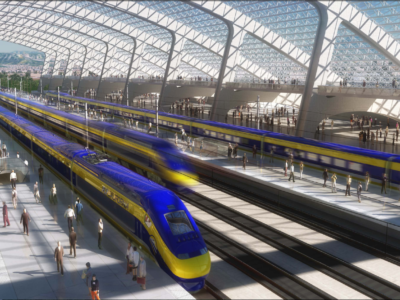California
Governance infrastructure for water resilience
CLEE comments on Governor Newsom’s water portfolio executive order
Governor Gavin Newsom has directed state agencies to prepare a water resilience portfolio. Executive Order N-10-19 describes a set of broad principles to inform the development of the portfolio, as well as extensive outreach that should accompany the process, which is being conducted on an aggressive timeline. The EO states, correctly, that California needs a …
Continue reading “Governance infrastructure for water resilience”
CONTINUE READINGEPA/Transportation Announcement of California Waiver Revocation is Full of Falsehoods and Irony
How Many Misstatements Can You Find?
This morning, the Environmental Protection Agency and Department of Transportation formally announced — as expected — that the Trump Administration is revoking California’s waiver to set its own vehicle standards. Yesterday, Trump tweeted the news, coupling it with falsehoods claiming that the rollback would save lives and save consumers money. As I blogged yesterday, both …
CONTINUE READINGTrump’s Tweet about Yanking California’s Waiver is, Shockingly, Full of Falsehoods
The rollback will not make drivers safer and will not save consumers money
President Trump just sent out a series of tweets announcing and defending his decision to revoke California’s permission to issue its own tough standards to reduce carbon pollution and require manufacturers to sell Zero Emission Vehicles in the state. Julia has a great analysis of why the decision is terrible policy and bad law that …
CONTINUE READINGTrump Announces Waiver Rollback on Twitter
Revoking California’s Clean Air Act Waiver Is Bad Policy and Legally Indefensible
This post was originally published on the American Constitution Society’s Expert Forum on September 18, 2019. President Trump announced the revocation on Twitter this morning. It’s not news that the Trump administration has been planning, via its so-called SAFE Rule, to freeze Obama-era fuel economy standards, roll back tailpipe greenhouse gas (GHG) emissions standards, and …
Continue reading “Trump Announces Waiver Rollback on Twitter”
CONTINUE READINGWhat Hath California Wrought?
Has California climate policy succeeded? Yes, but it’s complicated.
California’s climate policy have been a success, but quantifying the effects is complicated. It’s harder than it might seem to determine whether a climate regulation has succeeded. California has clearly hit or exceeded its target for overall carbon emissions reductions under its method of carbon accounting. But if we ask how much global emissions are …
Continue reading “What Hath California Wrought?”
CONTINUE READINGTOC Under Fire
Fix the City’s new lawsuit challenges a key transit-oriented housing program
Last week, a Los Angeles slow-growth group, Fix the City, filed a lawsuit challenging a West Los Angeles development project on Santa Monica Boulevard. The project, a seven-story, 120-unit apartment building less than half a mile from the Century City mall, was approved using density bonus, height, and setback incentives through the City of Los …
Continue reading “TOC Under Fire”
CONTINUE READINGIs California’s High Speed Rail Project Falling Apart?
Join my KALW radio conversation tonight with newly appointed High Speed Rail Authority board chair Lenny Mendonca at 7pm
The future of California’s high speed rail system has arguably never been as perilous as now. Otherwise-supportive legislators are now openly mulling raiding high speed rail funds meant to complete the first leg in the Central Valley for rail improvements in the more densely populated parts of California, namely the San Francisco Bay Area and …
Continue reading “Is California’s High Speed Rail Project Falling Apart?”
CONTINUE READINGRumored White House Move to Revoke California’s Waiver Is Trump’s Revenge Against the State
Move Motivated by Spite, Not by Policy Considerations
A White House official today confirmed to Politico that the Administration is considering revoking California’s permission (called a “waiver”) to set its own greenhouse gas emissions and zero emission standards for cars and light trucks. Rumors are that the waiver revocation could happen as early as tomorrow. The news in this announcement is that the …
CONTINUE READINGA Rule to Revoke California’s Waiver?
Why an action to revoke the waiver for California’s Advanced Clean Cars program could be the Administration’s worst move yet.
A couple of weeks ago, the New York Times reported that in the midst of growing “disarray” around the rollback of the Obama-era fuel economy and greenhouse gas tailpipe emissions standards, “Mr. Trump went so far as to propose scrapping his own rollback plan and keeping the Obama regulations, while still revoking California’s legal authority …
Continue reading “A Rule to Revoke California’s Waiver?”
CONTINUE READINGThe World’s Looming Water Crisis
Climate Change Worsens Chronic Water Shortages for One-Quarter of Earth’s Population
The World Resources Institute recently released a disturbing report chronicling increased, dire water shortages around the globe that threaten millions of the earth’s inhabitants. Climate change is a major contributing factor. Public health crises, social unrest and global political conflicts are the inevitable consequences if the problem is not addressed successfully–and soon. “17 Countries, Home …
Continue reading “The World’s Looming Water Crisis”
CONTINUE READING










